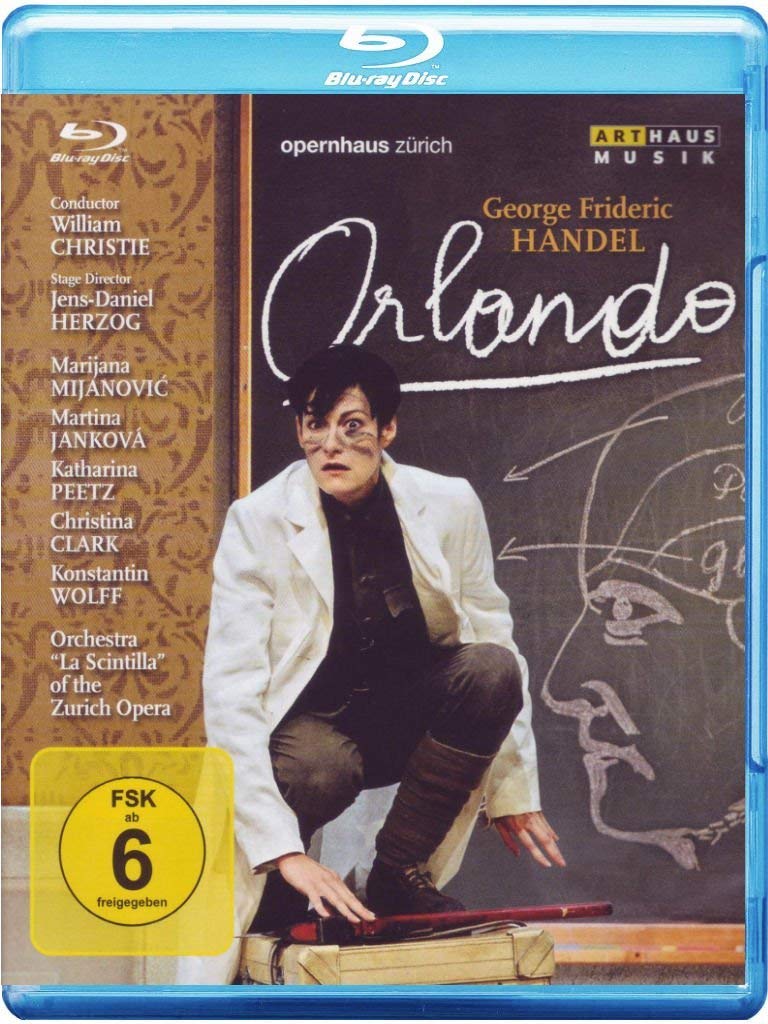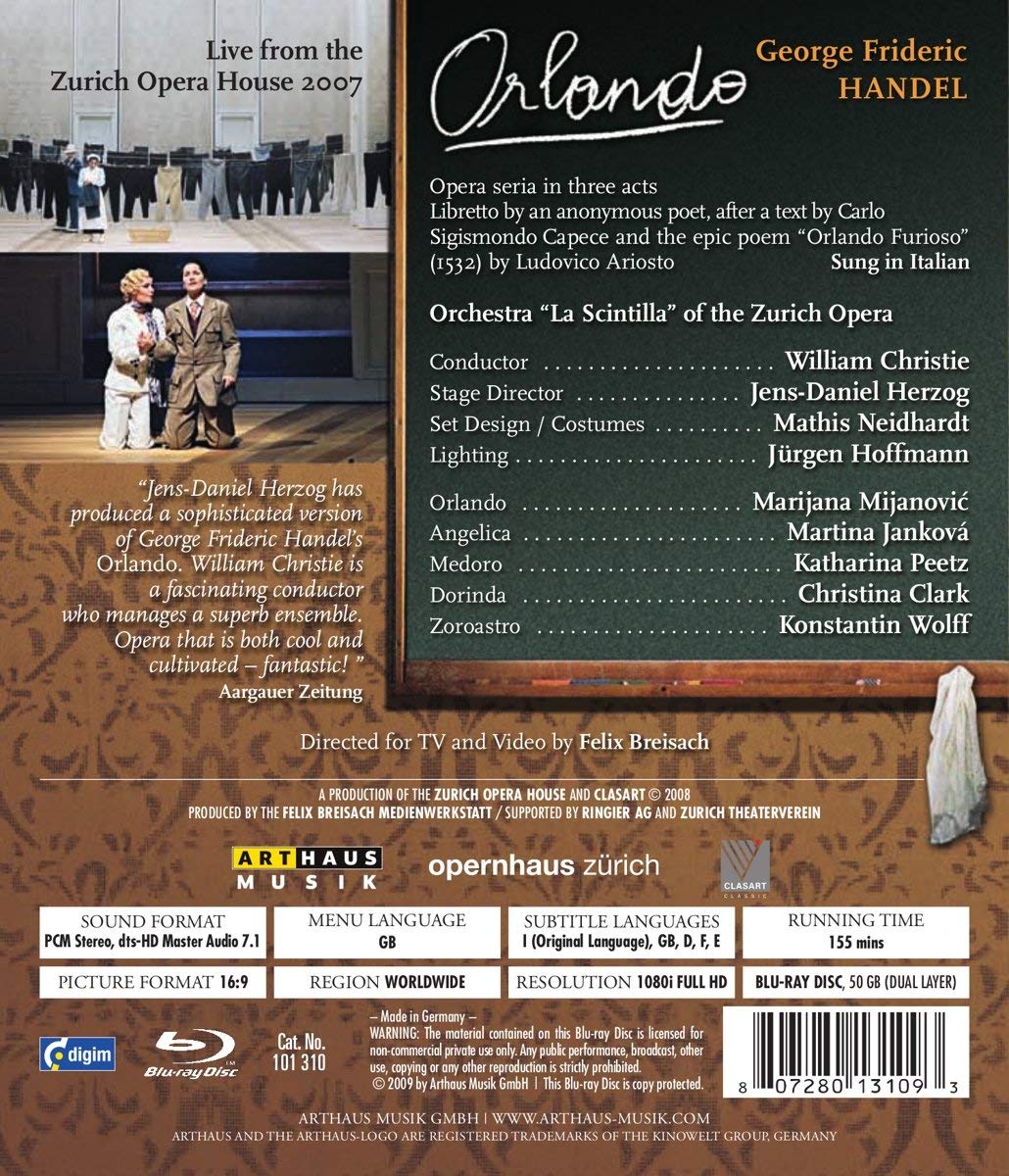

Handel Orlando to libretto by an anonymous poet. Directed 2007 by Jens-Daniel Herzog at the Zurich Opera House. Stars Marijana Mijanović (Orlando), Martina Janková (Angelica), Katharina Peetz (Medoro), Christina Clark (Dorinda), Konstantin Wolff (Zoroastro), Carmela Beetz, Simon Berger, Kristina Knauerhase, Wanda Hlubina, Martin Hallauer, Zacharias Katsas, Barbara Looser, Wolfram Schneider-Lastin, and Rico F. Valär (Genii). William Christie conducts the Orchestra "La Scintilla" of the Zurich Opera. Continuo: Brian Feehan, theorbo; Paul Carlioz, cello; Benoît Hartoin, cembalo; Dieter Lange, contrabass; Karen Opgenorth and Nada Anderwert, viola d'amore. Sets and costumes by Mathis Neidhardt; lighting by Jürgen Hoffmann. Directed for TV by Felix Breisach. Sung in Italian. Released 2009, disc has dts-HD Master Audio 7.1 sound. Grade: A
Orlando (premiered in 1733) is perhaps one of Handel's best operas. Orlando is a great soldier in Charlemagne's army who falls in love with the pagan princess Angelica, who in turn loves another man, Medoro. Orlando's jealousy drives him to madness, and only the skill of magician Zoroastro is able to bring him back to sanity. This 2007 production from the Zurich Opera House does indeed set the story in times closer to our own --- perhaps the 20's or 30's. But what is particularly novel about the setting is that it takes place in a lunatic asylum! This approach in fact works well, apart from one or two occasions when the singers refer to their surroundings as "forests," "groves," or "grottoes." At one point it even starts snowing --- indoors. When madness is in the air, we can suppose that anything goes.
There is indeed some very fine singing from the five principals, although talent is unequally distributed. The most remarkable voice is clearly that of mezzo Marijana Mijanovic singing the title role, originally written for a castrato. Her performance is a tour de force, and there are some wonderful moments when she and Angelica (Martina Jankova) sing together, particularly in the amazing trio "Consolati o bella" at the end of act one. The other outstanding voice is Konstantin Wolff --- the "magician" Zoroastro--- who in this context becomes the mental institution's psychiatric doctor. His rich, deep bass gives him an air of mesmerizing authority, an impression emphasized by the "lectures" he gives to his staff of nurses and attendants, illustrated with diagrams and formulas drawn on a chalkboard.
The set, made up of modular, sliding walls inset with doors, a fold-down bed, the "classroom," and a fireman's cubbyhole, has an endless variety of constantly changing volume and space --- peopled by the ever-busy troupe of nurses and muscular attendants. This means that there is always something going on to offset extended passages of virtuoso baroque ornamentation during which time (and the cast) would otherwise be standing still.
The production is punctuated by impressive and surprisiSorry, no decent YT clip for this.ng visual "twists." For example, a door bursts open and we see Orlando grasping an axe (stolen from the fireman) silhouetted against a blinding light and crying out his fury, anguish, and turmoil in a masterfully sung mezzo/countertenor outburst of insanity. William Christie conducts with his usual flair, giving the music a constant impetus that makes it fresh and delicately intricate, bringing out to perfection the orchestration and sweet tones of the authentic instruments.
Picture quality and sound are both superb with images from the 7 high-definition cameras expertly edited to deliver close-up intimacy as well as plenty of long shots to reveal the stage as seen by the audience. As an introduction to Handel's operas, this would certainly be an excellent choice. It's also a fine example of how successful "updating" an opera sometimes can be.
Thanks to Wonk Gordon Smith for this review.